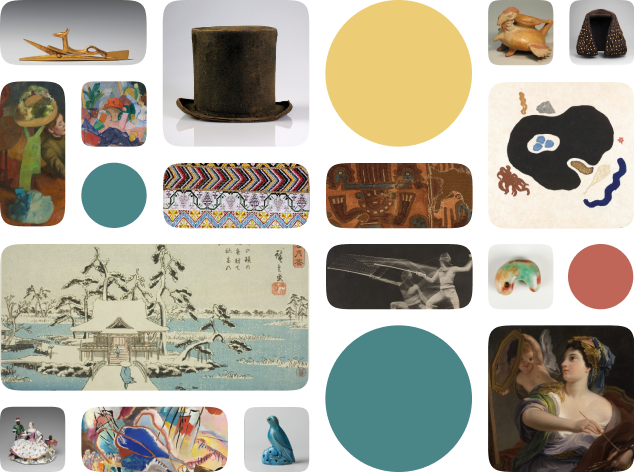Goddess Hariti Seated Holding a Child
Creator Name
Cultural Context
Date
Source
About the work
This stele of the goddess Hariti is from the Pala dynasty, which extended from current-day central India through current-day Bangladesh. Pala rulers supported Buddhism, and their patronage encouraged a striking school of Buddhist art. This black stone sculpture likely sat in a niche in a temple, for worship by devotees. This Hariti, following convention, is surrounded by her children. She wears the thick, jeweled girdle common among many South Asian goddesses. Her body shape is less rectangular and more lithe than Kushan representations of Hariti. Her large breasts and small waist are typical of South Asian goddesses associated with prosperity and fertility. Her seated posture with one leg out, called lalitasana, is common among Buddhist and Hindu deities in South Asia.
Work details
"--" = no data available
Title
Creator
Worktype
Cultural Context
Material
Dimensions
Technique
--
Language
--
Date
Provenance
Style Period
Rights
Inscription
--
Location
Source
Subjects
Topic
Curationist Metadata Contributors
All Works in Curationist’s archives can be reproduced and used freely. How to attribute this Work:
Unknown, Goddess Hariti Seated Holding a Child, 10th–11th century. Art Institute of Chicago. This stele of the goddess Hariti shows her surrounded by her children and wearing a thick, jeweled girdle common to many South Asian goddesses. Public Domain.
Help us improve this content!
Let our archivists know if you have something to add.
Save this work.
Start an account to add this work to your personal curated collection.
